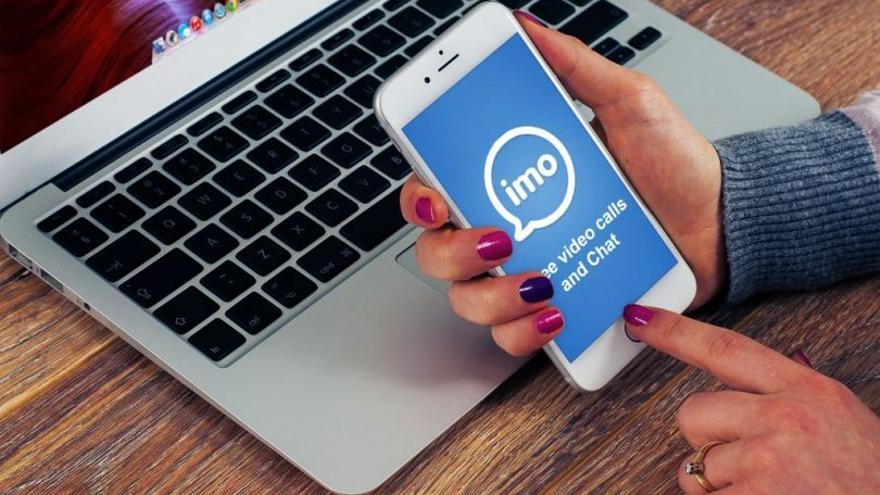
![]() 14ymedio, Luz Escobar / Mario J. Pentón, Havana / Miami, 15 January 2019 — A recent update of the popular IMO messaging and calling application has left thousands of Cubans on both sides of the Florida Strait without communications. After the update the contacts with the American prefix disappears, inviting the user to open a link to install the application again.
14ymedio, Luz Escobar / Mario J. Pentón, Havana / Miami, 15 January 2019 — A recent update of the popular IMO messaging and calling application has left thousands of Cubans on both sides of the Florida Strait without communications. After the update the contacts with the American prefix disappears, inviting the user to open a link to install the application again.
“The problem with IMO coincided with the Nauta Hogar network and the Wi-Fi network throughout the country going offline, and last night I called [the state phone company] Etecsa to ask what was happening and they told me there were problems with the application,” an app user from Cienfuegos who connects through Nauta Hogar said by telephone.
IMO surpasses in popularity other videoconferencing applications, due to its stability, the ability to operate despite poor quality connections and its free services. Initially, it was used exclusively in Wi-Fi zones, but with the arrival of the internet to mobile phones, users have also started to use it on the 3G networks.
“The app is unavailable throughout the country but it has nothing to do with Etecsa,” clarified a customer service operator who identified herself as Yaneisy.
“We have been receiving calls reporting problems with IMO but we can’t do anything about it because it’s not under our control,” she said.
IMO did not immediately respond to a request for comment made by this newspaper, but in several technology forums users from other countries complained that they could not call any number in the United States through the tool.
Other instant messaging applications such as WhatsApp and Telegram are not reporting problems from the Island for calls or videoconferences, other than those derived from low connection speeds that, in some cases, cause crashes and delays in the arrival of the image and sound.
Luis Castro, a computer scientist who has a repair workshop for computers and cell phones in Havana, recommended that users “use safer alternatives such as WhatsApp, Telegram or Messenger.”
“By consuming less data, IMO is cheaper for the user’s pocket, but that’s also why the quality of the image and sound is worse, not to mention security,” he explained.
A telephone call through Etecsa’s regular service costs 1.10 CUC (Cuban convertible peso roughly equal to the US dollar) per minute to the Americas and 1.20 CUC to the rest of the world, while an Internet browsing card costs 1 CUC per hour.
Cuba allowed navigation through mobile data with 3G technology in Mid-December. The telecommunications monopoly offers several data packages between 7 and 30 CUC. You can also pay through your telephone bill at a rate of 0.10 CUC per Megabyte.
IMO in the last three years has not only become the preferred app for Cuban families to keep in touch with relatives who have emigrated, but has also played an important role for activism on the Island, where it is used frequently to broadcast calls for assembly and to organize meetings.
Translated by Wilfredo Díaz Echevarria
___________________________
The 14ymedio team is committed to serious journalism that reflects the reality of deep Cuba. Thank you for joining us on this long road. We invite you to continue supporting us, but this time by becoming a member of 14ymedio. Together we can continue to transform journalism in Cuba.
